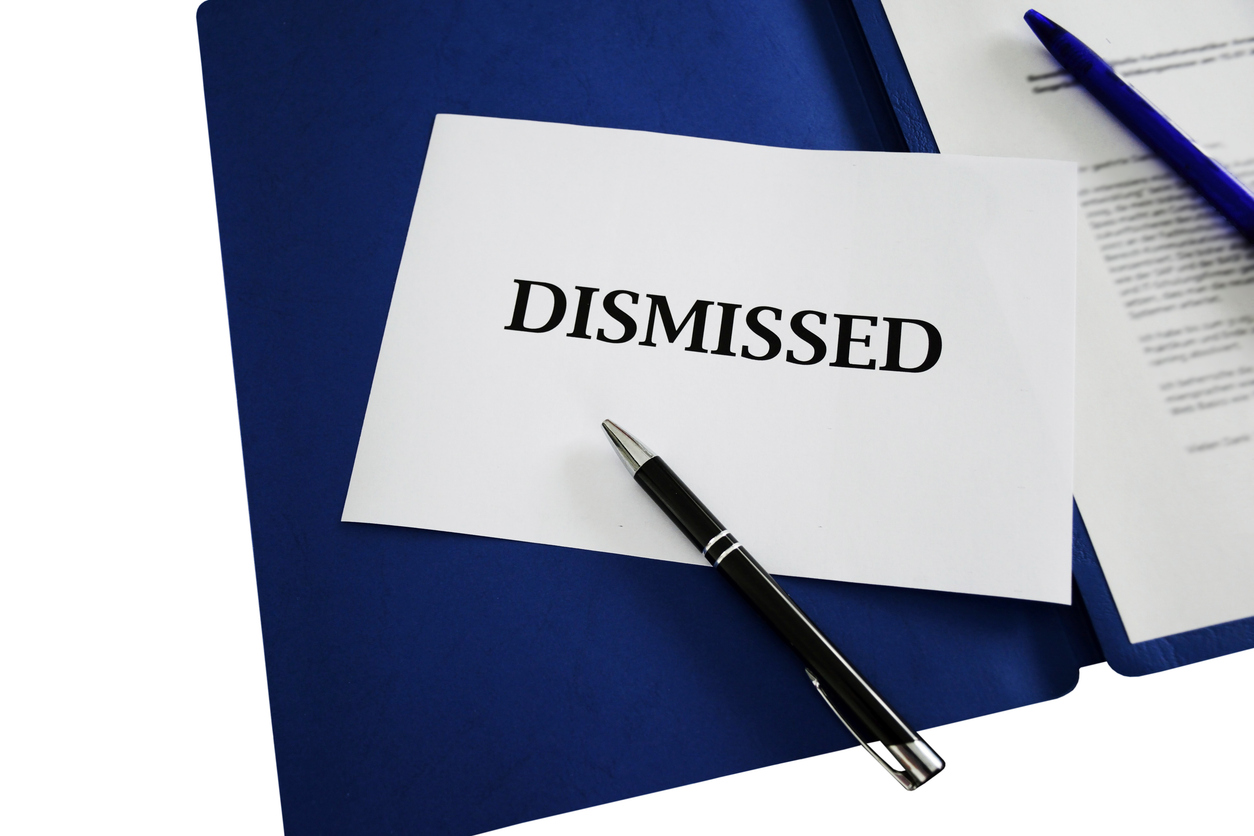I once told an Allstate Insurance Company adjuster that if forced, I was going to sue over a very small matter, less than a thousand dollars, because it simply was not right that Allstate was taking “betterment” deductions on the adjustment of an automobile comprehensive coverage loss to a friend of mine. This small county court case eventually resulted in a significant class action settlement in Florida in excess of $20 million dollars. I have no idea why some insurance companies do not try to settle earlier and would rather wait until the information uncovered results in a bad situation getting worse. Unfortunately, unless the litigation fortunes of one public adjusting company changes dramatically on appeal, a seven thousand dollar fee dispute could cost many public adjusters millions in class action lawsuits.
This post follows three previous ones:
- A Chronology of Public Adjuster Regulations Regarding What Florida Public Adjusters Can Charge
- Public Adjusters Sued in Class Action for Wrongful Conduct–Are Unauthorized Practice of Law Class Action Suits Next?
- Public Adjusters Targeted by Lawyers for Overcharging Policyholders
We have now tracked how this matter started and its current status. As I explained at our ethics seminar yesterday afternoon, the class action lawsuit may have strong merit unless an appeal in the Florida Third District Court of Appeal overturns an administrative ruling in favor of a policyholder and against the public adjuster. The attorneys advertising for other policyholders may soon have competitors because unless the Department of Financial Services (“DFS”) ruling is found incorrect, many public adjusting firms were charging similar fees which the DFS has ruled as being illegal and other class action attorneys may jump into the fray.
The four source documents relevant to this analysis are:
- The DFS notice of an Order disposing of Clyde Lightbourn’s petition on January 23, 2009.
- The Initial Brief of Ameriloss Public Adjusting filed May 18, 2009.
- Lightbourn v. Ameriloss Class Action filed May 15, 2009.
- DFS Answer Brief filed August 10, 2009.
The significant legal matters started with a petition to the DFS filed by Lightbourn which stated:
A Petition for Declaratory Statement to the Florida Department of Financial Services was filed by Mr. Lightbourn on August 20, 2008 (R. 15-16), stating the following:
STATEMENT OF FACTSPetitioner is the owner of the property which was damaged on or about August 25, 2005 by hurricane Katrina. That hurricane prompted the Governor of the State of Florida to declare the existence of a state of emergency in the State of Florida.
Responding to numerous public adjuster consumer complaints, in September 2006, the Division of Agent and Agency Services of Florida’s Department of Financial Services (the "Department") made several changes to the Florida Administrative Code with regard to ethical requirements for public adjusters. The new rules were designed to regulate the behavior of public adjusters following a disaster-created state of emergency, and to address concerns that some public adjusters might exploit disaster victims by charging excessive fees or by purposefully delaying claims in order to outwit a state-imposed cap on fees.
After having received what Petitioner believed to be an inadequate settlement payment from his homeowner’s insurance company, on January 4, 2007 Petitioner entered into an agreement with the public adjusting firm of AmeriLoss Public Adjusting, Corp. ("AmeriLoss"), a copy of which is attached as Exhibit 1 (the "Agreement"). The Agreement provides for AmeriLoss to receive a fee of 33 1/3 % of any supplemental claim.
Rule 69B-220.201(5) (b) of the Florida Administrative Code provides, in pertinent part, that no public adjuster shall charge any fee equal to more than ten percent of the amount of any insurance claim payment. Rule 69B-220.201 (5) (d) of the Florida Administrative Code provides that "[t]his subsection applies to all claims that arise out of the events that created the State of Emergency, whether or not the adjusting contract was entered into while the State of Emergency was in effect and whether or not a claim is settled while the State of Emergency is in effect." Both rule subsections seem unambiguous, and were in effect at the time of the execution of the Agreement.
QUESTIONS PRESENTED1. Is an agreement entered into by a licensed Florida Public Adjuster, which violates the Florida Administrative Code Rule 69B-220.20 Ethical Requirements regulating the behavior of public adjusters, a legally binding and enforceable agreement
2. Is AmeriLoss entitled to receive 33 1/3 % fee pursuant to the Agreement
In the Ameriloss Initial Brief, we find other facts indicating that the matter is rather routine and fairly small:
On January 4, 2007, Mr. Clyde Lightbourn retained AmeriLoss Public Adjusting, Corp. to represent him on a supplemental claim for Hurricane Katrina damages sustained to his property…
…
…AmeriLoss’ fee of 33 1/3 % for new money, above and beyond what he was previously paid…
…
In summary, Mr. Lightbourn only received $12,285.47 prior to retaining AmeriLoss’ services approximately a year and five months after Hurricane Katrina affected his property. AmeriLoss [sic] fee is based upon new money and has nothing to do with what he previously received from his Insurance Company. He was aware of the contingency contract of "no recovery, no fee." AmeriLoss went to work and it was instrumental in recovering him $22,062.27 on June 21, 2007, five months after he elected to engage in the services. There was no argument by Mr. Lightbourn at that time to pay AmeriLoss the fee of $7,354.09, which was $14,708.18 net to him.
Mr. Lightbourn was still not satisfied with the amount recovered so he decided to invoke his appraisal rights under the policy by hiring legal counsel. AmeriLoss Public Adjuster David DelVecchio was the assigned appraiser representing him in the appraisal process and as a result, Tower Hill Insurance issued another check for $20,903.55, which AmeriLoss [sic] fee still due is $6,967.29…
The DFS ruled for Lightbourn and against Ameriloss, finding in part:
Based on the specific facts presented in the Petition, Rule 69B-220.201(5)(b), Florida Administrative Code is indeed applicable to the issues presented. The above-referenced rule that is at issue in this petition became effective on September 3, 2006. (emphasis in original). As previously stated, the parties entered into the fee agreement at issue on January 4, 2007, approximately four months after the rule was promulgated,(emphasis in original). Thus, under the facts presented, although the Governor of the State of Florida issued an Executive Order declaring a state of emergency as a result of the anticipated landfall of Hurricane Katrina prior to the execution of the fee agreement, the operative rule was in effect well before that date.
…
12. It should also be noted that subsection (d) of 69B-220.201(5), F.A.C., by its own language, applies to all claims that arise out of the events that created the State of Emergency, "whether or not the adjusting contract was entered into while the State of Emergency is in effect." Thus, this provision was obviously intended to apply to situations whether or not a declared state of emergency was in effect during the claim settlement process. Therefore, this rule language buttresses the view that the event that triggers the rule in this instance is the execution of the fee agreement. Consequently, the ethical constraints of Rule 69B-220.201, which limits public adjusters to a 10% fee under such exigent circumstances, are properly applied to this factual situation.
So, the DFS has ruled that charging more than 10% of settlements on supplemental claims from Hurricane Katrina is illegal. Obviously, Wilma has many more re-opened claims and there is no reason to think this rule will not apply to Wilma and possibly the 2004 hurricanes.
The DFS has filed its brief and its summary position is pretty simple to understand:
At the time Department lawyer Terry Butler stated that
there was no legal limit on fees which could be charged by a
public adjuster when no emergency rule was in effect, there was
no such limit (February 10, 2006). However, the Department
concluded that Florida property owners, having suffered from
catastrophic windstorms, should not be victimized a second time
by rapacious public adjusters following the State of Emergency.
The Department thus proposed remedial language to Florida
Administrative Code Rule 69B-220.201 ("Ethical Considerations").
If Ameriloss failed to participate during the lengthy rule
adoption process, it wasn’t due to a lack of notice which the
Department published a week after Mr. Butler’s letter. See vol.
32, no. 7 Fla. Admin. Weekly (2/17/06) at p. 698.
Ameriloss would have this Court believe that the Department
acted without authority, thereby denying Ameriloss due process.
However, the Florida Legislature made sure the regulatory agency
charged with overseeing insurance adjusters’ conduct had
sufficient rule authority to address their dealings with those
suffering from insured losses. Section 626.878, Florida
Statutes (2008) provides:Rules; code of ethics. – An adjuster shall subscribe
to the code of ethics specified in the rules of the
department [of Financial Services]. The rules shall
implement the provisions of this part and specify the
terms and conditions of contracts, including a right
to cancel, and require practices necessary to ensure
fair dealing, prohibit conflicts of interest, and
ensure preservation of the rights of the claimant to
participate in the adjustment of claims. (Emphasis
added.)Although the statute cited above is not mentioned in
Ameriloss’ brief, it is the primary authority for the rule and
the concomitant declaratory statement of which Ameriloss
complains.Although not a party to the proceeding, the six-page
[I]t is clear that AmeriLoss had prior notice that
Declaratory Statement resulting from the petition, specifically
addressed Ameriloss’ complaint that it had somehow suffered from
retroactive application of rule language adopted months before
its contract with Mr. Lightbourn:
only a ten percent fee for such services rendered in
connection with hurricane damage was deemed to be
appropriate, because the rule at issue was already in
effect at the time the parties entered into the fee
agreement. When weighing the criteria enumerated by
the controlling case law, the most supportable view
is that the application of the rule in this specific
instance would not constitute an impermissible
retroactive operation. (R-6; emphasis in original.)
contrary to Ameriloss’ conclusion (IB-28), Florida
Administrative Code Rule 69B-220.201 does apply to the
Lightbourn contract and therefore the Declaratory Statement
should be affirmed.
Ameriloss claims that it had a letter from the DFS stating that the fee in excess of ten per cent was permissible. Unfortunately for Ameriloss, that letter was issued eight months before the new rule came into effect. The DFS simply says the letter does not apply.
I am not certain what the appellate court will do. Generally, appellants lose. If so, the filing of the class action and the advertising for new clients as noted in my posts may be a method for some class action attorneys to “cash in” on an unfavorable ruling against Ameriloss. Obviously, this contract scenario has been entered into thousands of times with thousands of dollars in fees. The amounts charged and relevant to this situation will be conservatively in the eight figures. Many public adjusting firms are in the same boat with Ameriloss. This is not an insignificant matter if the appellate court upholds the administrative ruling.
As I noted in the beginning of this post, small disputes can quickly get out of hand if not resolved. At this point, the disputed $6,967.29 fee seems pretty insignificant.



